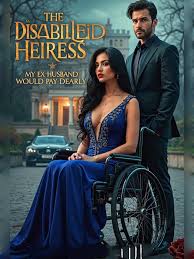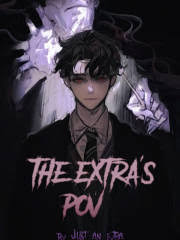The Story in 3 Sentences
Marissa Aaron is forced to marry her blind brother-in-law Rafael Sinclair after her sister Valerie abandons him at the altar, bound by family duty to conceal her true identity and pretend to be Valerie throughout their marriage .
When Rafael miraculously regains his sight through successful eye surgery, Valerie returns to claim her position as his rightful wife, leading Marissa—now pregnant with triplets—to flee rather than fight for the man she has genuinely come to love .
The story follows Rafael’s gradual discovery of the truth about his marriage and the parentage of the triplets, creating a complex emotional journey of betrayal, forgiveness, and the redefinition of family amidst powerful societal pressures .
Why It Stands Out
1. Emotional Complexity in Forced Proximity
The novel masterfully explores the psychological dynamics of a marriage built on mistaken identity, delving into how genuine emotions can develop even under false pretenses. The gradual transformation of Marissa’s dutiful sacrifice into authentic love and Rafael’s subconscious attraction to the woman beneath the identity creates a rich tapestry of emotional conflict that elevates the typical arranged marriage trope .
2. The Triple Layer Revelation
Unlike standard secret baby tropes, this story compounds its revelation with three distinct layers of discovery: Rafael’s realization about his wife’s true identity, the shocking existence of his children, and the ultimate understanding of how deeply he was manipulated by both his family and his own perceptions. This multi-faceted unveiling maintains suspense across hundreds of chapters while providing satisfying payoff moments .
3. Nuanced Portrayal of Disability
Rafael’s blindness serves as more than just a plot device, offering a thoughtful exploration of how disability affects relationships, trust, and perception. The novel examines how his physical condition creates power dynamics that others exploit, and how his regained sight metaphorically represents his journey toward emotional and truth perception .
Characters That Leave a Mark
There’s Valerie Aaron - The charismatic but manipulative older sister whose abandonment triggers the central conflict, representing the toxic family dynamics and social pressures that force Marissa into her impossible situation. Her return to claim what she discarded adds layers of moral complexity to what could have been a straightforward villain role .
You’ll meet Sophia James, who serves as Marissa’s gynecologist and confidante, becoming an unexpected ally who risks her career to protect her friend’s secret. Her role expands beyond medical professional to moral compass and strategic partner in Marissa’s escape, representing the theme of chosen family over biological obligations .
And the triplets? Abi, Ariel, and Alex represent the innocent consequences of adult deception, their adorable interactions and unconditional love providing both emotional relief and powerful motivation for the central characters’ actions. Their scenes offer glimpses of the family dynamics that could have been and ultimately drive the reconciliation narrative .
The Flaws Fans Debate
The novel’s extended length—spanning over 500 chapters—leads to noticeable pacing issues, with some middle sections feeling stretched thin with repetitive emotional confrontations and delayed revelations that test reader patience .
Some character motivations, particularly Valerie’s consistent manipulations and the family’s ongoing complicity, occasionally strain credibility as the story progresses, making certain conflicts feel artificially maintained rather than organically developed .
The English translation quality receives occasional criticism for grammatical inconsistencies and awkward phrasing that sometimes disrupts the reading experience, though many fans note improvement in later chapters .
Must-Experience Arcs
Ch. 1-50: The Blind Marriage - The foundational arc establishing the forced marriage, Marissa’s identity concealment, and the development of genuine connection between the protagonists before Rafael’s sight restoration surgery sets everything in motion .
Ch. 120-150: The Escape - Critical chapters where pregnant Marissa, realizing Valerie has returned and Rafael doesn’t believe her truth, makes the heartbreaking decision to disappear completely, aided by Dr. Sophia in a tense sequence that establishes the central mystery of the missing years .
Ch. 400-450: The Family Reckoning - The emotional culmination where Rafael finally discovers the triplets’ existence and true parentage, leading to confrontations with both Valerie and his mother about their manipulation, and beginning his genuine pursuit of redemption and family reconciliation .
Killer Quotes
“M… Marissa! Are they my kids?” Rafael’s eyes weren’t moving away from the adorable kids’ faces .
“No, Rafael. They are not. They aren’t yours. Remember? We were never married!” Marissa said with a fake smile, she batted her lashes quite dramatically .
“I love reading this book and it always gives me excitement when the children will meet their father” - Fan reaction capturing the community’s anticipation around the central family reunion .
Cultural Impact
The novel won the WebNovel Spirity Awards 2024 Gold Winner, cementing its status as a platform standout and introducing many readers to the secret baby/identity swap romance subgenre .
It sparked extensive reader discussions about family ethics and moral responsibility, particularly around questions of whether Marissa should have revealed her identity earlier or if Rafael’s family manipulations mitigated his initial rejection .
The story developed an international fanbase that created fan art focusing on the triplets and their interactions with both parents, particularly celebrating scenes where the children unknowingly bridge the gap between their estranged parents .
Final Verdict
Start Here If You Want:
An emotionally intense romance that explores complex family dynamics and the consequences of deception with surprising depth and character development.
A slow-burn reconciliation story where the journey toward forgiveness and understanding takes precedence over instant resolutions, featuring well-earned emotional payoffs.
A novel that uses its extraordinary length to develop side characters and subplots that enrich the central romance rather than simply padding the word count.
Study If You Love:
The emotional complexity and family dynamics of authors like Danielle Steel but with more dramatic plot twists and higher-stakes romantic conflicts.
The secret baby trope as explored in novels by Nora Roberts but with additional layers of mistaken identity and family conspiracy that deepen the narrative.
The extended emotional journeys and character development found in Korean drama series, where relationships are tested across many episodes before achieving resolution.
Avoid If You Prefer:
Fast-paced romances with quick resolutions and minimal angst, as this story dwells extensively on emotional turmoil and extended separation.
Stories with straightforward morality where heroes and villains are clearly defined from the beginning, as this novel explores moral gray areas and complicated family loyalties.
Concise storytelling without subplots or extended secondary character arcs, as this novel takes its time exploring multiple perspectives and storylines.





